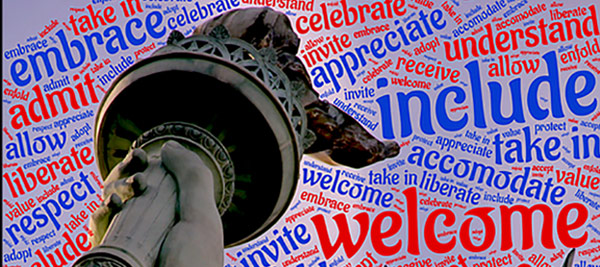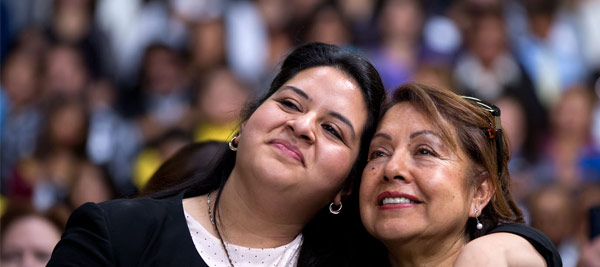The Opportunity Survey – Immigration Findings
The Opportunity Survey, our national research into public opinion and attitudes on inequality, delves into questions regarding immigration, experiences of discrimination, and opportunity. Findings include:
There is substantial support for legislation to address the status of undocumented immigrants living in the United States. A majority of Americans, 56 percent, support a path to citizenship for these individuals—and that grows sharply to 83 percent if they first pay a fine, pay back taxes, learn English, and pass background checks.
However, Americans divide between blaming inequality faced by undocumented immigrants on social conditions or on their own behavior—36 percent apiece, with the rest blaming some of both.
The most important predictors of support for a path to citizenship and of support for other policy items are:
- thinking that social conditions, more than group members’ behaviors, are responsible for inequality faced by undocumented immigrants and Latinos alike
- believing in “linked fate” in prosperity
- seeing inequality as unacceptable
- having had recent personal interactions with undocumented immigrants and Latinos
- believing that government programs intended to address inequality actually work
There is a strong relationship between support for immigration measures and support for other social issues, with those who say they are likely to take action (or already are doing so) to support a path to citizenship being 36 to 49 points more willing than others to take action in support of fair treatment of minorities in the justice system (77 vs. 28 percent), encouraging equal opportunity (92 vs. 51 percent), and reducing poverty (92 vs. 56 percent).
- In terms of allied groups, nonwhites and unmarried women in particular are more likely than the general population to be willing to take action (or to be already doing so) to support a path to citizenship, fair treatment of minorities in the justice system, reducing poverty, and encouraging equal opportunity overall.
- The gap between nonwhites and the general population is especially large on two issues: supporting a pathway to citizenship (60 vs. 40 percent) and fair treatment of minorities in the justice system (69 percent of nonwhites are willing to act to support this vs. 48 percent overall).




